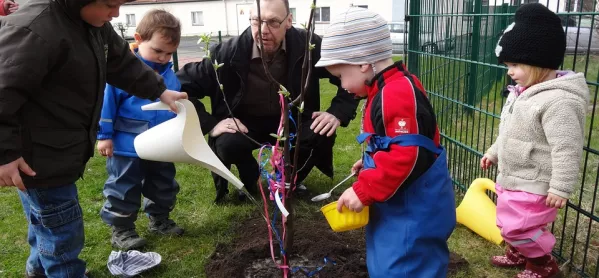
- Home
- Why do we treat early years teachers as second class?
Why do we treat early years teachers as second class?

There is no more important job in education than working in the early years.
The first five years are widely accepted to be critical when it comes to a child’s development. During this period, a child’s brain develops at a faster rate than at any other time in their life. Researchers at Harvard University have estimated that in the first few years, more than 1 million new neural connections are formed in the brain every single second.
It’s the stage at which crucial foundations are being laid. These foundations are likely to have a long-term impact on a child’s learning, behaviour and health. While much of this early development takes place in the home, by the age of four a high proportion of children will have also spent significant time in an early years setting, interacting with early years professionals.
Given the importance of this stage of education, it would seem logical that those working within it should be afforded a particularly high status.
And yet, for many who have chosen to work in this part of the sector, it can often feel like the exact opposite. Rather than feeling like they are being treated as the highly skilled and knowledgeable professionals that they are, they are often left feeling like second-class citizens in a system that for some inexplicable reason still appears to underestimate and undervalue the critical and complex nature of their work.
Early years teacher status acts as a perfect example of this. We've learned that the government has once again missed its own target for early years teacher recruitment. In fact, only 365 people enrolled on to an early years teacher course in 2018. Sadly, this data hardly comes as a surprise. DfE data shows that the number of early years teachers has declined every year since the scheme’s launch in 2013-14.
While this figure is perhaps not surprising, it certainly is concerning. Qualifications alone are no guarantee of high-quality provision, but studies have repeatedly shown that having highly qualified staff is a strong indicator of childcare quality. As Save the Children has pointed out, “the presence of trained teachers and staff with relevant degree level qualifications in nurseries brings an added impact for a child’s early learning and development, particularly for those growing up in poverty.”
So why are people shunning the qualification given the critical nature of this work? We don’t have to dig too deep to find the answer. In a survey carried out by PACEY earlier this year “nearly all respondents were concerned about the fact that an early years teacher does not earn the same or have the same recognition as a teacher with QTS”.
Save the Children has found that early years teachers feel they are not rewarded for the effort taken to complete their status or their new knowledge. They also found that they are particularly frustrated that peers with QTS earn significantly more than them, despite both statuses having the same entry requirements and taking the same length to complete. Given this backdrop, it is hardly surprising that we have seen such a decline of interest in the role.
If the government does not take action soon, there is a real risk that early years teacher status will disappear altogether. Rather than seeing an increase in the number of graduates working in the early years, we could see the exact opposite.
Ultimately, if the government is serious about reversing the alarming decline in the number of people becoming qualified early years teachers, then they need to really consider going back to the drawing board to determine what needs to be done to afford these professionals equal status with other teachers. This may well involve replacing the current qualification with a new specialist early years route that comes with QTS.
However, we also need immediate action. With the numbers falling as quickly as they are, there is an urgent need to take some quick short-term steps if we are going to halt the decline in the numbers applying for early years teacher status.
Save the Children has made a number of very sensible recommendations that could help to tackle the issue. For example, it has proposed a trial of early career payments. These are already being trialed to incentivise secondary maths teachers to remain in teaching, so why not apply this to early years teachers? It also proposes that the government trial a funding top-up for providers in disadvantaged communities to cover the costs of employing a graduate. Providing such financial support would mean that providers can actually afford to employ these graduates and pay them a fair wage, thus making the qualification more attractive.
To paraphrase an old educational aphorism: an education system cannot exceed the quality of the professionals who work within it, and this is as true for early years as for any other part of the sector. It is time for the government to see investment in early years professionals for what it truly is: an investment in the long-term success of our country.
James Bowen is the director of NAHT Edge
Register with Tes and you can read five free articles every month, plus you'll have access to our range of award-winning newsletters.
Keep reading for just £4.90 per month
You've reached your limit of free articles this month. Subscribe for £4.90 per month for three months and get:
- Unlimited access to all Tes magazine content
- Exclusive subscriber-only stories
- Award-winning email newsletters
You've reached your limit of free articles this month. Subscribe for £4.90 per month for three months and get:
- Unlimited access to all Tes magazine content
- Exclusive subscriber-only stories
- Award-winning email newsletters



